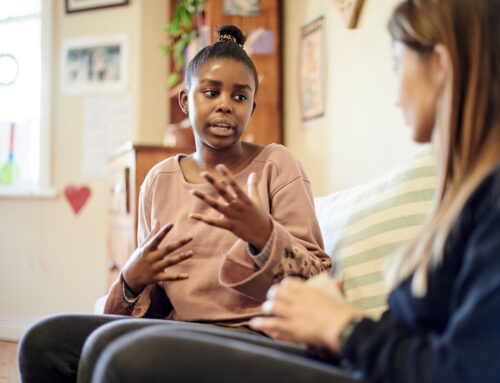How Parent-School Collaboration Prevents Underage Drinking in North Carolina

As students head back to school this fall, families across North Carolina are preparing for more than just new backpacks and class schedules. They’re also preparing for real-life conversations about peer pressure, mental health, and the challenges teens face as they grow up.
Forty-seven percent of North Carolina high school students report having tried alcohol, and nearly 1 in 10 NC students say they’ve turned to alcohol as a coping mechanism. With peers and social media normalizing underage drinking, teens need honest conversations with trusted adults.
North Carolina parents and schools are teaming up to help prevent underage drinking and support student well-being. This collective alcohol prevention effort is gaining momentum across the state! If you are an educator or youth mentor, your influence is one of its most powerful tools.
Why Should Parents Partner with Schools?
North Carolina school districts like Wake County and Guilford County emphasize one clear message: parent involvement matters. Wake County’s Parent and Family Engagement Policy states, “Parents are their children’s first teachers… and their continued involvement is crucial to academic and personal success.”
The 2023 State of Underage Drinking in North Carolina report found that 93% of students believe parents could help stop underage drinking if they talked more openly about it. Yet half of students said they’re embarrassed or afraid to start those conversations. That’s why parent-school collaboration is so important.
Teens may be more comfortable approaching teachers, coaches, and mentors with hard topics. The most important thing is that teens get accurate information from a trusted adult rather than other teens or media.
According to the CDC, parent-school partnerships have a positive impact on teen behavior:
- Better behavior in school
- Higher academic achievement
- Stronger social-emotional skills
- Reduced likelihood of engaging in risky behaviors
10 Ways Parents Can Partner with Their Teen’s School
North Carolina parents want their teens to thrive academically, emotionally, and socially. Educators can bridge the gap between school and home by providing parents with practical ways to stay engaged.
Even small, consistent efforts can make a meaningful difference in a student’s experience. Here are 10 actionable ways parents can take a hands-on role in alcohol education while partnering with their school community throughout the year:
- Go to Open House. Parents who meet their teen’s teachers in person can communicate that they are open to establishing partnerships with educators for the betterment of their student.
- Discuss alcohol education. Ask whether alcohol education is covered in classes like health or biology. Use those topics as a springboard for honest, age-appropriate conversations at home.
- Talk to coaches and club advisors. From sports teams to arts programs, extracurricular mentors play a big role in shaping confidence and decision-making abilities for teens. Building a relationship with these trusted adult figures creates a stronger support network.
- Attend school events. A parent’s presence shows teens that they’re involved and paying attention outside of the home.
- Use school communication tools. Log in to the school portal or app. Stay up to date on events, grades, and announcements.
- Download free conversation cards. Talk it Out NC created 30 quick prompts to help spark meaningful conversations with parents and teens. Schedule some time and ask one each week for the whole school year.
- Stay alert to academic changes. A sudden drop in grades can signal stress or something more serious. Work with teachers and ask how parental involvement can help students improve.
- Attend parent-teacher meetings. These meetings are valuable opportunities to discuss student progress and learn how to strengthen school-home collaboration.
- Get the facts about alcohol. What parents learned about drinking growing up may not reflect current science. Offer research about how alcohol impacts a developing brain so they can speak from a place of knowledge.
- Start a family media habit. Choose one evening a week to watch a YouTube video or listen to a podcast about teen choices, peer pressure, or alcohol prevention. Continue the conversation afterward.
How Schools Help Teens Succeed in Life
Parents may push pragmatic skills like sticking to a budget or making a meal. However, learning real-world tools for navigating social life, setting boundaries, and standing firm when personal values are challenged are equally important skills.
As part of Clay County’s Parents Guide, educators partner with parents to teach values like respect, empathy, and responsibility. They offer leadership programs, volunteer opportunities, and character education woven into daily lessons. As one Clay County teacher shared, “As educators, we get to pour our heart, mind, and soul into our students in order to help them achieve their full potential.”
Coaches, drama teachers, and band directors also play a key role. These mentors build safe spaces where teens feel seen and valued for their talents. Their efforts often help teens develop two of the best defenses against peer pressure: strong decision-making skills and self-worth.
It Takes a Team to Keep Teens Alcohol-Free
Knowing how to connect with teens can feel overwhelming. At Talk it Out NC, we believe that preventing underage drinking in North Carolina includes parent-school collaboration.
This upcoming school year, if parents, teachers, and mentors can work together to help teens make healthy choices, we can change the narrative and achieve success in preventing underage drinking in North Carolina. Start the conversation today!



